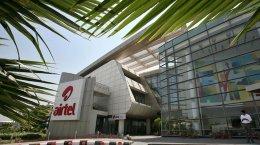Amazon and Flipkart have lined up at least $3 billion worth of investment in India in the near future. However, amidst these mega announcements the important question is: where will all this money go?
One component is to hire engineers and top notch retail brains and pay salaries to the thousands of people who work in these two giants and to an extent for subsidising the consumers by selling products at par the procurement cost that is absorbing the losses of selling costs (read: customer acquisition cost) and for writing off accumulated losses of the past.
However, it’s not just about trying to build resources to remain the last man standing in the bloodbath to follow. A good chunk of the investments will go into building warehouses, expanding product line, upgrading and expanding supply chain and possibly acquisitions or let’s term it acqui-hiring.
Warehouses
The big daddies of e-commerce are likely to tie up with logistics developers for built-to-suit warehouses, against buying land and then developing them. The fact that leasing as a model is cheaper, quicker and hassle-free is among the reasons why it will be preferred. That shouldn’t cost a bomb and would be a conventional route to expand warehouses.
Indeed, Amazon has just announced five new fulfilment centres in India which would take total such facilities to seven in the country. Flipkart has around half a dozen such centres at present and is also looking to expand the number.
“After leasing properties, Flipkart or Amazon would invest on automation which is very important for fast and smooth delivery of products,” said Samantak Das, chief economist and head research, Knight Frank India.
“The number of sophisticated warehouse with upgraded facility is limited in India,” Das said.
Aspects like robotics and automation within the facility could absorb a portion of the money being poured.
Preferred locations for warehouses and fulfilment centres would be outskirts of top cities, as they ensure connectivity with main consumer markets.
Availability of huge land parcels at the periphery of cities at cheaper price and low level of occupancy in industrial hubs will throw up enough opportunities for back-end needs of these mega companies.
“Their priority will be building warehouses in distributed capacity. For example, if you want to deliver something over 24 hours, you have to be located near to the customer physically. They are going to build capacity across locations so that they can serve the consumers on a speedy manner,” Abhishek Sharman, managing director, Carpediem Capital Partners, said.
Marketing
Both Amazon and Flipkart have been spending money in both traditional media as well as online ads for attracting consumers and this would be stepped up with the new money flowing in. Ad agencies and media companies would be a happy lot.
People
This is going to be like a game of monopoly. The only difference being you are not buying but hiring and it’s not places or other worldly assets but human skills at stake. Ultimately this would be a key in getting not just more vendors on the site but also putting more products in the marketplace, features on the site and on the mobile apps, shipping products that much faster to the consumer to get repeat business and so on.
Media reports have already stated how firms like Flipkart have been doing the rounds at top B-school campuses.
And the firms are shelling out top dollars. For the year ended March 31, 2013 (when the marketplace was not launched yet) and the firm was much smaller in size, the two co-founders of Flipkart had received Rs 10.25 crore each in remuneration. The firm had at least 17 other personnel who had monthly compensation of Rs 2 lakh or more (not counting ESOPs).
With the quantum growth seen by the firm since then, it would be fair to expect this number has shot up over the last one year.
As the war for talent takes over this would rise even further as the firms look to bring on board experienced players from other retailers especially with back-end and inventory management knowledge, marketing brains besides engineers.
The repercussion would be felt not just by others in the e-com business as cost of hiring moves up, it would also pose a challenge to other employers as people from FMCG, retail, consumer durables and possibly auto, known to have good experience dealing with consumer facing product sales, are brought in as lateral hires.
Then there is the whole lot of delivery boys, who are the last mile link to consumers.
"The startup ecosystem is moving along quite nicely. These (Flipkart and Myntra) are just two examples, but a bunch of other companies is getting funded now. I anticipate a major growth in startup jobs emerging in a few months. In fact, it is already happening and will further accelerate," Shiv Agrawal, managing director of manpower search agency ABC Consultants, said.
"Traditionally on campuses people would choose established companies saying they would be good learning platform. However, what you are seeing now is that startups have been one of the biggest recruiters; companies like Snapdeal and Flipkart are picking up students from MBA and engineering level," he said.
We have seen doubling of demand of people startups in the last six months. Now with funding coming in billions, more and more people are joining these companies. They are willing to take the risk of joining a startup and setting up their own startup,” Agrawal added.
According to Krish Lakshmikanth, chairman and managing director of another placement consultancy Headhunters, over 50,000 people will be hired in the next two quarters by the e-commerce sector.
"However, 90 per cent of them will be in warehousing and logistics and will not be paid phenomenal salaries. A company like Amazon may pay them Rs12,000 to Rs13,000 per month. The rest of the people will be hired for programming and content creation for these websites," he said.
Acquisitions
Flipkart has already done a few including Myntra recently but expects more activity going forward which can come as both acqui-hires as well as competitor killer moves.
"Mergers and acquisitions are also one of the areas where the money will be spent. I don't think there are many large players that are remaining to be acquired. Fashion was a category where Myntra was very large. They were important players and that is why they were acquired. However, going forward a lot of other mergers and acquisition with smaller companies are likely to happen; they will be acquired by either Flipkart or Amazon. Focus would be on unique technologies, any new mobile technology which can potentially provide better consumer experience," said Aashish Bhinde, executive director, Avendus Capital.
Moreover, with considerable focus on mobile technology, startups involved in mobile payments, analytics, mobile marketing and so on would make for a good fit for Flipkart.
This goes for Amazon, too. Indeed, a few weeks ago it roped in Abhijeet Muzumdar, vice president of global VC firm Bessemer Venture Partners, as its head of corporate development and private investments. He is expected to look at acquisitions in India and Southeast Asia and also possible strategic investments.
Then there is a whole set of smaller competitors waiting for money. With the market expected to get polarised towards the top dogs, they would be a clear candidate for being acquired or rather acqui-hired, if you may.
(Edited by Joby Puthuparampil Johnson)






